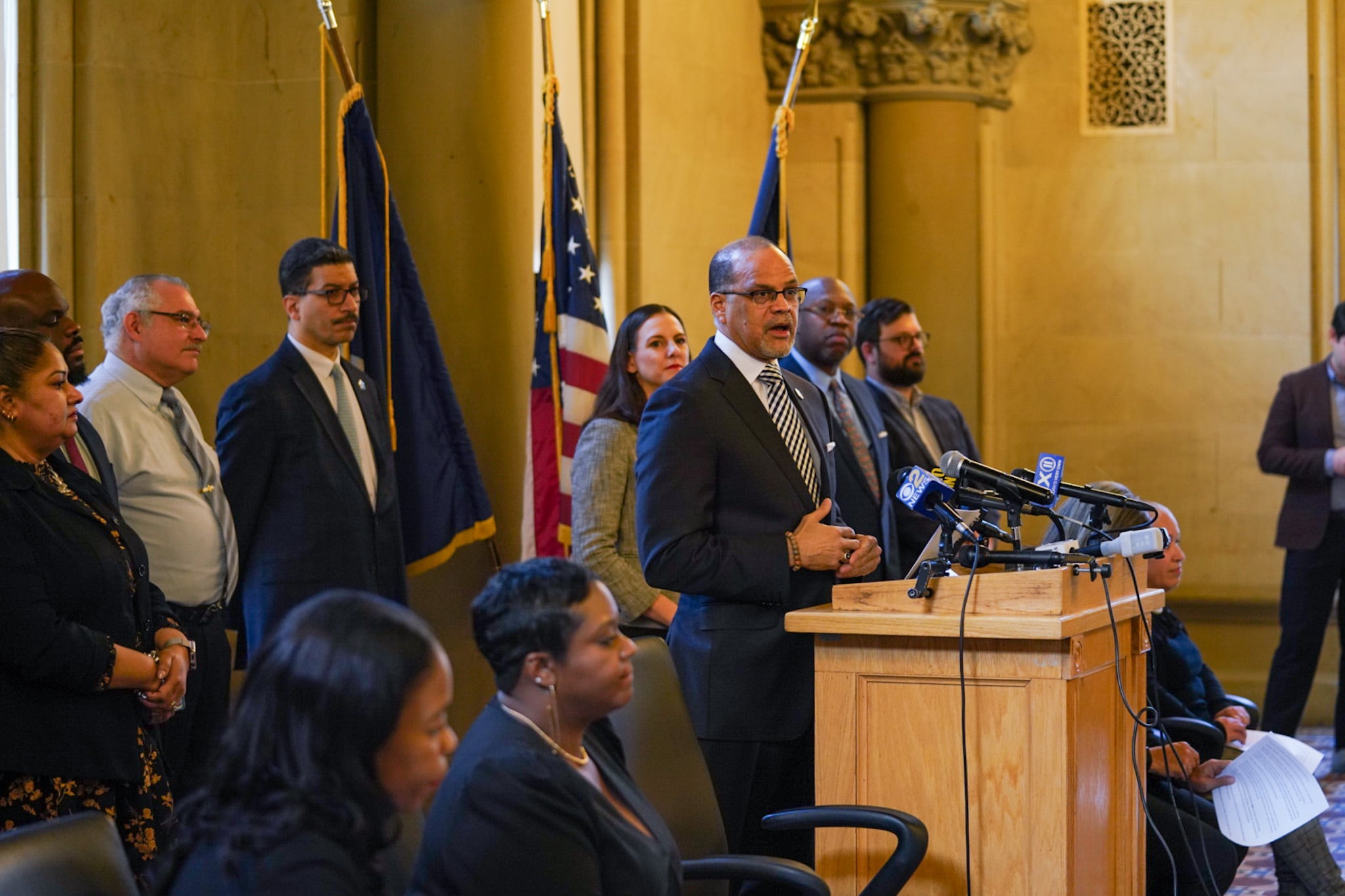New York City Mayor Eric Adams could soon reverse a major budget cut to early childhood education, schools Chancellor David Banks hinted Monday.
Adams previously announced $170 million in cuts from city funding to free early childhood education programs effective next fiscal year as part of sweeping citywide cuts in November and January.
On top of that cut from the city’s coffers, prekindergarten programs are due to lose one-time federal pandemic aid that expires this summer. Roughly $92 million in federal aid is going toward supporting this year’s 3-K program for the city’s 3-year-olds, and another $90 million is helping pay for special education programs for preschoolers.
The city is facing a total “fiscal cliff” of nearly $1 billion next year, and advocates have been sounding the alarm for months on the need to come up with new funding to replace those disappearing federal dollars.
At a City Council budget hearing Monday, Banks called the city cuts “extremely hurtful to the entire enterprise of early childhood,” and said he was “fighting like heck to get these cuts restored.”
Though he didn’t commit to anything specific, Banks said, “I have great confidence in the coming weeks we will have really good news around early childhood.” He added, “The mayor’s office, City Hall, feels the same way.”
Asked later in the hearing by Council member Jennifer Gutiérrez (D-Brooklyn) which specific funding streams he’s fighting to get restored, Banks named the $170 million city cut. He also cited the expiring $92 million in federal funding for 3-K this year. Deputy Chancellor Emma Vadehra mentioned the $90 million in federal money for preschool special education seats that will dry up after this year.
The early childhood cuts, if reversed, would be the latest item slashed by Adams in recent months to get restored thanks to what city officials describe as an improving budget picture.
Adams has also announced restorations of cuts to the police, fire, and sanitation departments, as well as a $10 million cut to community schools that partner with community organizations to provide extra support to families. More recently, the city promised to allocate additional funding to bring back popular food items that were cut from school cafeteria menus in February.
Adams had initially planned another round of city budget cuts in April, but canceled those cuts last month.
Critics of the cuts have long contended that they were never necessary in the first place, and that city officials were being overly pessimistic with their financial predictions to create more pressure on the federal government to boost funding for the city’s influx of migrants.
The cuts and subsequent reversals have created a whiplash that’s been disorienting even for seasoned budget watchers.
Early childhood education advocates have warned that the early education cuts could have devastating consequences and force the city to permanently close seats.
If the city comes up with money to replace the expiring federal money for 3-K and special education preschool programs, it would mark the city’s largest commitment yet to replace an education program at risk from the fiscal cliff.
So far, the city has only committed $80 million to keep Summer Rising, a free academic and recreational summer program, going this year. Promising to prop up 3-K and special education preschool funding after the federal aid expires would prevent significant cuts to seats and drastic pay cuts for preschool special education teachers.
Even if cuts are reversed, preschool program face challenges
City officials conceded Monday that some 600 preschoolers with disabilities are still languishing without adequate preschool seats, despite federal legal mandates and the city’s own promise to get every child a seat.
And even before this year, Adams had already curtailed former Mayor de Blasio’s plans to aggressively expand the city’s free 3-K program to make it universal. De Blasio’s vision was largely funded with one-time federal pandemic aid, raising questions about its sustainability, and when Adams took office, he seemed to be hobbling the program. Program providers complained of rising payment delays and lackluster outreach from city officials.
Adams administration officials have contended that they’ve simply been right-sizing the program, and that they still plan to be able to offer a 3-K seat to any family that wants one. They have also argued that the existing seats aren’t properly distributed, with some neighborhoods seeing lots of open seats, while others have much more demand than supply.
Deputy Chancellor Kara Ahmed, who oversees early childhood education, said the city has cut roughly 8,000 seats that weren’t being used and redistributed 7,000 to other programs to parts of the city where they’re more likely to be filled.
Making matters more complicated, officials said Monday they’re still waiting on the results of a $760,000 study commissioned more than a year ago from the consulting company Accenture mapping out the city’s preschool seat needs. Banks said he expects the Accenture report in early April.
Michael Elsen-Rooney is a reporter for Chalkbeat New York, covering NYC public schools. Contact Michael at melsen-rooney@chalkbeat.org.







